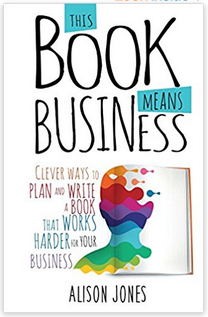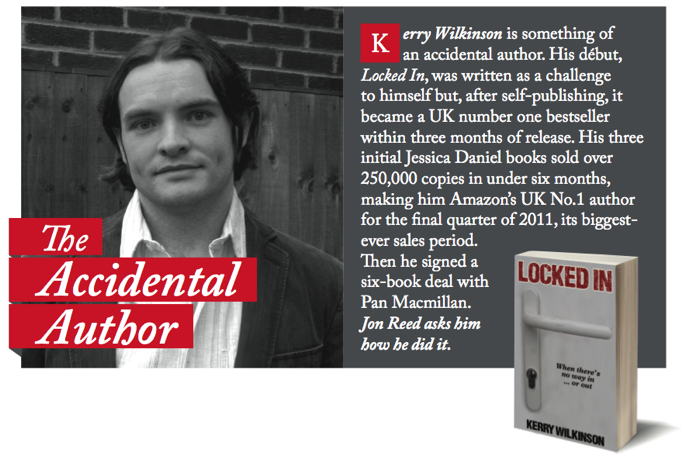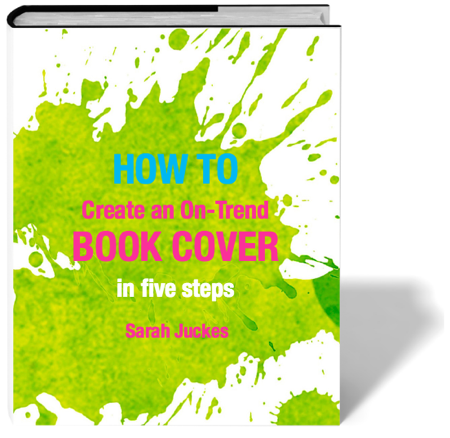Why your book is your greatest marketing tool
The book used to be the thing you marketed. Today it’s also a tool to market yourself or your business. Business coach, content consultant and publisher Alison Jones shares her advice for using self-publishing as a business strategy.
This article appeared in issue 7 of Publishing Talk Magazine, and first appeared on this blog on 17 Oct 2017. Alison Jones’s new book This Book Means Business is available now.
[rt_reading_time label="Reading Time:" postfix="minutes" postfix_singular="minute"]
I work with businesses and organisations with something to say. So this article is primarily about non-fiction, books that showcase expertise or aim to educate or inform. But whatever you’re writing, a book represents a significant investment of your time, and it’s worth being clear about what return you want from that investment.
A battle for attention
A book used to be pretty much the only vehicle by which authors could reach readers. It lost that USP the day the Web was invented. Over the last couple of decades multiple sub-species of author-friendly communication have evolved: ebook, web page, video, microvideo, elearning, infographic, animation, app, game, webinar, podcast, post, pin, tweet. And unlike the traditional book, which is self-contained and self-sufficient, these new kids on the block exist in a complex matrix of referral and response.
As an author, what you’re actually engaging in is a battle for attention. You could see all these other forms of communication as competing with your book, or you could see your book as an integral part of this rich, dynamic ecosystem of content – part of your content marketing strategy. (Hint: I’m going to be selling the latter.)
It’s a mind flip. The book used to be the thing you marketed. Today it’s ALSO the tool by which you market yourself or, in the case of most of my clients, your business or organisation. If content is the ultimate proof of concept, the book remains the ultimate form of content.
Is it still worth writing a book?
In this busy new communication landscape, is it still worth writing a book? After all, it’s a significant drain on your time and energy, when as a business owner there are so many other demands on both. The opportunity cost is high: how can you be sure this indeed the best possible use of your time? How can you be sure that people will still buy into the idea of the book at all in a year’s time, let alone five years from now?
Oddly enough, I believe it’s the very fact that the book is so familiar, well-established and embedded in our culture that makes it a safe bet, for now at least. I’d argue that investing your time in mastering a new social media channel is more risky, as it’s more likely to be rendered irrelevant by the next innovation. (Which is not to say you shouldn’t – it’s vital that you keep up with new channels as they emerge, not as a slave to the latest fad but as part of a thoughtful content marketing strategy.) In a world in which platforms are emerging and evolving at a dizzying rate, the shared cultural understanding of what a book is and how it works is priceless. When people are facing disruption and novelty at every turn, a book represents the familiar, the secure, the trusted.
Books are part of our psyche. We look to them for information and inspiration.
Books are part of our psyche. We look to them for information and inspiration. We trust and respect those who write them. And we should: the act of writing a book, a good book, at least, is an exercise in crystallizing and refining thought, in distilling experience and intelligence. A blog post captures and develops a thought: a book sustains and processes that thought into something more, something fuller and deeper.
In a book, you have space and time to set out a compelling narrative rather than a superficial tagline. For any potential customer genuinely interested in what you can offer, this is an unparalleled opportunity to get to know you and what you stand for.
Be a generous author
Several would-be authors have worried out loud to me about ‘giving away’ their secrets in their book. There’s an old marketing adage that used to be received wisdom – ‘Give ’em the sizzle, not the sausage’ – meaning that you should always keep something back, give them a reason to cough up more money, tease them with suggestions of something more. I encourage authors to take a more generous-spirited view: to stretch a metaphor to its breaking point, there will always be more sausages, and once they have the sausage, they will come back for the egg and bacon and fried bread. And if they don’t, at the very least you will have had the satisfaction of satisfying others and doing yourself justice in the process.
Guy Kawasaki has a different food-related metaphor. For him, there are two kinds of people in the world: bakers and eaters. ‘Eaters think the world is a zero-sum game: what you eat, someone else cannot eat, so they eat as much as they can. Bakers think that the world is not a zero-sum game—they can just bake more and bigger pies. Everyone can eat more. People trust bakers and not eaters.’ Be a baker: everyone loves bakers, and there are far too many eaters in the world already.
If you don’t write this book, eventually someone else will.
And if that doesn’t convince you, consider this: if you don’t write this book, eventually someone else will. Is it better for your potential clients to associate all that wonderful, rich information with you, or with your competitor?
Beyond the book
It doesn’t stop with the published book, of course. It doesn’t even start there. While you’re planning and writing your book, consider how you can engage your ‘tribe’ with the book you’re creating: ask questions, invite contributions, put titles or covers up for public vote, share extracts, blog about the experience of writing. If someone makes a particularly valuable contribution, credit them in your acknowledgements. One of my authors crowdfunded her book and has a ready-made sales team waiting for launch to tell the world about the book that bears their name.
Having codified your methodology in your book, can you translate it into an Udemy course or a 1-day workshop?
Once the book’s finished, start thinking what’s next: having codified your methodology in your book, can you translate it into an Udemy course or a 1-day workshop?
That whole panoply of communication channels and social media is at your disposal. Be creative, and be clear about what you’re saying, who you’re saying it to, and why.
There’s never been a better time to write a book. Think strategically and focus on the benefits you want that book to secure for you – whether that’s generating leads, establishing credibility, increased visibility, speaking gigs, whatever it is you know that you want it to achieve for you and/or your business. In addition you’ll achieve something you might not have expected: the satisfaction of creating something unique and worthwhile, of speaking in your authentic voice about the things that you care passionately about. This frequently turns out to be one of the great, enduring achievements of your life.
 Alison Jones’s book This Book Means Business: Clever ways to plan and write a book that works harder for your business is out now.
Alison Jones’s book This Book Means Business: Clever ways to plan and write a book that works harder for your business is out now.



It sounds crazy, especially if all you really want to do is write, but you should be investing as much, if not more time in your PR and marketing as you do in actually writing the book.
Encouraging article. I liked the part about engaging one’s tribe in the process of writing. I know there is a whole group of friends and acquaintances who are waiting for my book to finally be “born”. Yes, born. Because there is definitely a period of “pregnancy” when it is developing in the “womb of my mind”; there are “labour pains” and eventually, finally the “baby” materializes. To involve my peers in the process is an excellent idea. That would make them appreciate the end product more if they can feel the growth and both the passion/the urge and the effort it takes to produce it. I also want them to share the satisfaction and feel the pride once the book is all done and ready for the world.
Very encouraging! I have been researching and writing for 40 years. My family, and others think I’m crazy. You have brougt to my attention the possibly using the “media” to promote. Thank You!!!